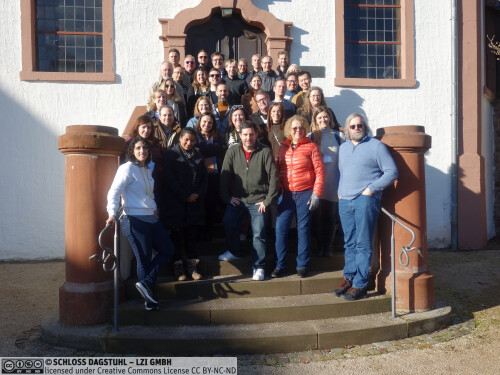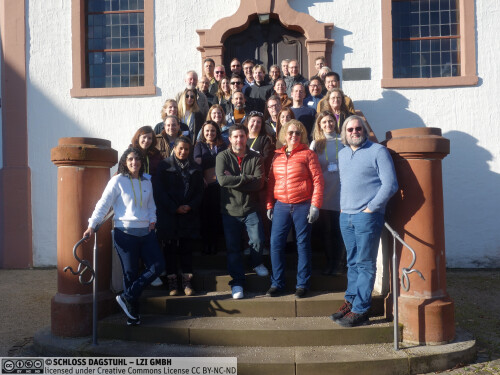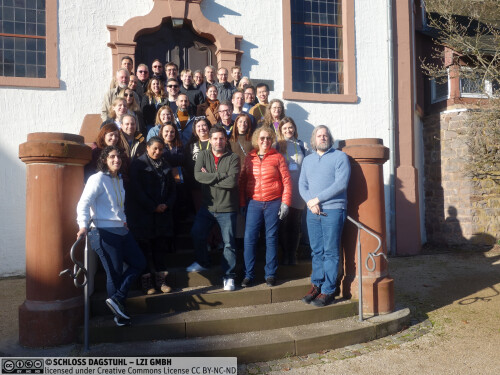Dagstuhl-Seminar 25031
Addressing Future Challenges of Telemedicine Applications
( 12. Jan – 17. Jan, 2025 )
Permalink
Organisatoren
- Andrew Duchowski (Clemson University, US)
- Joaquim A. Jorge (University of Lisbon, PT)
- Catarina Moreira (University of Technology - Sydney, AU)
- Nuria Pelechano (UPC Barcelona Tech, ES)
- Matias Volonte (Clemson University, US)
Kontakt
- Marsha Kleinbauer (für wissenschaftliche Fragen)
- Simone Schilke (für administrative Fragen)
Gemeinsame Dokumente
- Dagstuhl Materials Page (Use personal credentials as created in DOOR to log in)
Programm
Telemedicine transcends physical barriers to redefine healthcare. Its significance is paramount, offering a lifeline to those hindered by geographic constraints, and forging a path to accessible, efficient, and equitable medical assistance. It amplifies access, lowers costs, and enhances treatment compliance, which is particularly crucial for marginalized populations.
Significant technological progress allows researchers, developers, and medical practitioners to provide remote healthcare more efficiently and more safely than ever. Existing technologies can revolutionize telemedicine by delivering interactive, and secure healthcare experiences to patients. This fusion has the potential to bridge geographical gaps, enhance patient-provider relationships, and provide efficient medical services while ensuring the privacy and security of patient data.
This Dagstuhl Seminar will gather experts in the areas of XR Technologies (Virtual Reality, Mixed Reality, and Augmented Reality), Conversational avatar assistants, UX: Gaze Control and Visual Attention, and Data Privacy and Security fields to delve into the intricacies, innovations, and transformative potential of telemedicine. This esteemed congregation should foster a dynamic exchange of ideas, insights, and breakthroughs that will redefine the landscape of healthcare delivery.
The seminar's objective will be to identify the challenges and opportunities of the technologies discussed in this seminar for delivering safer and more efficient healthcare assistance remotely. This should result in a seminar proceeding that will serve as a handbook for computer scientists, academic researchers, and industry developers who are interested in telemedicine.
The invaluable insights will help to contribute to revolutionizing patient care by harnessing the potential of telemedicine to bridge gaps in medical accessibility. Together, we hope to pave the way for a more inclusive, efficient, and patient-centric healthcare landscape.
 Andrew Duchowski, Joaquim A. Jorge, Catarina Moreira, Nuria Pelechano, and Matias Volonte
Andrew Duchowski, Joaquim A. Jorge, Catarina Moreira, Nuria Pelechano, and Matias Volonte
Please log in to DOOR to see more details.
- Gerd Bruder (University of Central Florida - Orlando, US) [dblp]
- Andreas Bulling (Universität Stuttgart, DE) [dblp]
- Joana Campos (NESC-ID - Porto Salvo, PT & Instituto Superior Técnico - Lisbon, PT)
- Carolina Cruz-Neira (University of Central Florida - Orlando, US) [dblp]
- Nina Döllinger (Universität Würzburg, DE)
- Andrew Duchowski (Clemson University, US) [dblp]
- Pablo Figueroa (Universidad de los Andes - Bogotá, CO)
- Justyna Garnier (University of Social Sciences&Humanities - Warsaw, PL)
- Vivian Genaro Motti (George Mason Univ. - Fairfax, US)
- John Paulin Hansen (Technical University of Denmark - Lyngby, DK)
- Nina Hubig (Clemson University, US)
- Victoria Interrante (University of Minnesota - Minneapolis, US) [dblp]
- Eakta Jain (University of Florida - Gainesville, US) [dblp]
- Joaquim A. Jorge (University of Lisbon, PT)
- Regis Kopper (University of North Carolina - Greensboro, US)
- Joseph J. LaViola (University of Central Florida - Orlando, US)
- Benjamin C. Lok (University of Florida - Gainesville, US)
- Päivi Majaranta (Tampere University, FI) [dblp]
- Belen Masia (University of Zaragoza, ES) [dblp]
- Catarina Moreira (University of Technology - Sydney, AU)
- Luciana Nedel (Federal University of Rio Grande do Sul, BR) [dblp]
- Joao Ricardo Nickenig Vissoci (Duke University - Durham, US)
- Tabitha C. Peck (Davidson College, US) [dblp]
- Florian Pécune (University of Bordeaux, FR)
- Catherine Pelachaud (Sorbonne University - Paris, FR) [dblp]
- Nuria Pelechano (UPC Barcelona Tech, ES)
- Daniel Perez-Marcos (MindMaze SA, CH) [dblp]
- Voicu Popescu (Purdue University - West Lafayette, US)
- Nelson Silva (IT:U Interdisciplinary Transformation University, AT)
- Richard Skarbez (La Trobe University - Bundoora, AU) [dblp]
- Jeanine Stefanucci (University of Utah, US) [dblp]
- Hannes Högni Vilhjálmsson (Reykjavik University, IS) [dblp]
- Matias Volonte (Clemson University, US)
- Sebastian von Mammen (Universität Würzburg, DE) [dblp]
- Gregory F. Welch (University of Central Florida - Orlando, US) [dblp]
- Gabriel Zachmann (Universität Bremen, DE) [dblp]
- Katja Zibrek (INRIA - Rennes, FR)
Klassifikation
- Computers and Society
- Emerging Technologies
- Human-Computer Interaction
Schlagworte
- Telemedicine
- eXtended Reality
- eye tracking
- collaborative Virtual Environments
- Avatars
- Embodied Conversational Agents




 Creative Commons BY 4.0
Creative Commons BY 4.0
